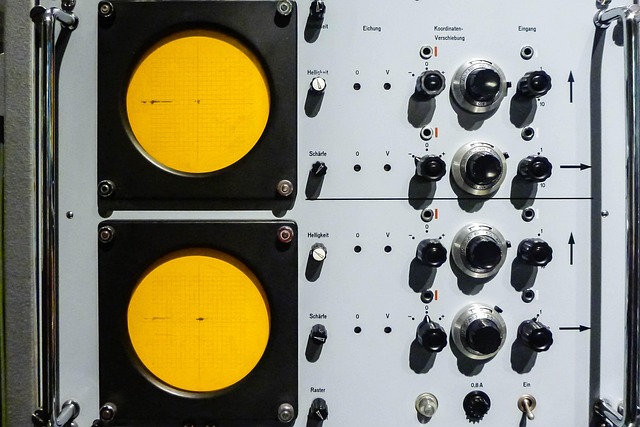Anger control therapy empowers individuals to manage intense emotions through psychoeducation, cognitive techniques like challenging negative thoughts, relaxation strategies, and building support networks. By understanding triggers, practicing mindfulness, and adopting healthier thinking patterns, people gain emotional regulation skills for constructive anger expression and improved well-being.
Anger is a powerful emotion that, if left unmanaged, can lead to destructive behaviors. Psychoeducation offers a transformative approach to anger control therapy, empowering individuals with the knowledge and skills to understand and regulate their emotional responses. This article delves into various techniques, from recognizing triggers and challenging negative thoughts to relaxation strategies and behavioral changes. By exploring these tools, you’ll gain insights into navigating and managing anger effectively.
Understanding Anger: Unraveling the Emotional Response

Anger is a powerful emotion that, when left unmanaged, can lead to destructive behaviors and negative consequences. Understanding this intense emotional response is the first step in effective anger control therapy. At its core, anger is a normal human reaction to perceived threats or frustration. It serves as an alert system, signaling that something important to us has been disturbed or violated. However, how we choose to express or manage this emotion varies greatly from person to person.
In psychoeducation for managing anger, individuals learn to recognize the physical and mental cues associated with their emotional response. They understand that anger can manifest in different ways—from mild irritability to intense rage—and each requires tailored coping strategies. By unraveling the complexities of their emotional response, individuals gain valuable insights into their triggers, enabling them to make informed decisions about how to respond rather than react impulsively.
The Power of Awareness: Recognizing Triggers and Patterns

Anger is a powerful emotion, and understanding its triggers is a pivotal step in managing it effectively. Psychoeducation plays a crucial role here by helping individuals recognize patterns in their anger—when, where, and why they feel angry. By increasing awareness, people can begin to identify specific situations or behaviors that set off their anger, serving as a warning sign for potential outbursts. This recognition allows for the development of strategies to navigate these triggers.
For instance, through psychoeducation, individuals learn to identify early signs of anger, such as increased heart rate or clenched fists, which can act as cues to take a step back and employ coping mechanisms. By being mindful of these patterns, one can make conscious choices to respond rather than react, thereby improving emotional regulation and reducing the intensity of angry feelings. Anger control therapy, thus, equips people with the knowledge and skills to manage their anger in a healthier, more constructive manner.
Cognitive Techniques: Challenging Negative Thoughts

Cognitive techniques play a crucial role in psychoeducation for managing anger. One effective method is challenging negative thoughts, a core component of cognitive-behavioral therapy (CBT). When individuals experience anger, their minds often generate automatic negative thoughts that can escalate the emotional response. By identifying and questioning these thoughts, individuals can learn to reframe their perceptions and replace maladaptive thinking patterns with more realistic and positive ones. This process helps to break the cycle of anger by reducing the intensity of the emotion itself.
During anger control therapy, individuals are taught to recognize when negative thoughts are taking hold and actively challenge their validity. For example, if someone believes, “I always lose my temper,” they might be encouraged to consider evidence that contradicts this statement. This cognitive reframing can help change the emotional reaction by shifting the focus from past failures to present opportunities for improvement, thereby fostering a more balanced and controlled response to anger-provoking situations.
Relaxation Strategies: Calming the Mind and Body

Relaxation strategies play a pivotal role in psychoeducation for managing anger. Techniques such as deep breathing, progressive muscle relaxation, and mindfulness meditation help individuals calm both their minds and bodies. By focusing on the present moment and acknowledging their feelings without judgment, people can reduce the intensity of angry emotions.
Anger control therapy often incorporates these strategies to equip individuals with effective coping mechanisms. Regular practice not only helps in immediate anger management but also fosters long-term emotional resilience. Through relaxation exercises, individuals learn to recognize and interrupt the physical cues that precede an anger episode, thereby promoting healthier responses and improved overall well-being.
Behavioral Changes: Developing Healthy Coping Mechanisms

Anger control therapy plays a pivotal role in psychoeducation, empowering individuals to navigate and manage their emotions effectively. Beyond mere behavior modification, this process involves cultivating healthy coping mechanisms as an alternative to expressing anger destructively. By learning and practicing techniques like deep breathing exercises, mindfulness meditation, and cognitive restructuring, individuals gain tools to recognize triggers and respond calmly rather than reacting impulsively with anger.
These changes in behavior foster a sense of self-awareness and emotional regulation, enabling folks to make conscious choices about their reactions. Over time, this can lead to improved relationships, enhanced well-being, and better overall management of anger in various situations.
Support Systems: Building a Network for Anger Management

Building a strong support system is an integral part of effective anger management. This includes connecting with individuals who can offer emotional support, practical advice, and encouragement throughout the process. Friends and family members play a crucial role in providing a safe space for open communication and helping to de-escalate tense situations. They can also serve as accountability partners, ensuring you stay on track with your anger control therapy goals.
In addition to personal relationships, considering professional support groups or therapy sessions can greatly enhance your ability to manage anger. Group therapy settings allow individuals facing similar challenges to share their experiences and gain new perspectives. These platforms foster a sense of community, enabling members to learn from one another while receiving guidance from trained professionals. This combination of personal connections and structured support can significantly contribute to successful anger control therapy outcomes.
